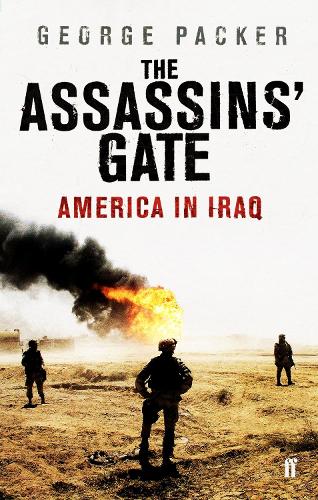
The Assassins' Gate: America in Iraq
(Paperback, Main)
Publishing Details
The Assassins' Gate: America in Iraq
By (Author) George Packer
Faber & Faber
Faber & Faber
1st February 2007
18th January 2007
Main
United Kingdom
Classifications
General
Non Fiction
History of the Americas
Warfare and defence
956.70443
Physical Properties
Paperback
512
Width 127mm, Height 198mm, Spine 30mm
390g
Description
The Assassins' Gate is the main entrance to the Green Zone, the fortified enclave of Saddam's former palaces that now houses the US military and political leadership in Baghdad. George Packer's remarkable book is an account of how America found itself in occupation of Iraq, using the country as a laboratory for the dissemination of democracy in the Middle East. The book is also an anatomy of chaos and failure, of how a utopian experiment went disastrously wrong.
Packer's intimate narrative is based throughout on the experiences of people caught up in violence and confusion. He describes, for example, the effects of the war on the family of an American soldier killed in Iraq, and on a young Iraqi woman who had hoped for secular liberation and found only religious oppression. Packer is also frank about his own evolving views, and paints a dark picture of Iraq's future in the aftermath of the 2005 elections. This is a literary work of contemporary history that is adequate to its terrible subject, the most controversial foreign policy adventure since Vietnam.
Reviews
"* probably the most valuable book about the lead-up to the war, and the period before the Iraqi election of January 2005 - The Times * informative and lively... An excellent reporter, Packer emerges as one of the few Western journalists who developed a feel for Iraq. - Mail on Sunday * absorbing... It's a riveting tale of mixed motives, willful connivance, skewed ideology and sheer incompetence... Meanwhile, the invasion of Irq seems to defy analysis, although Pakcer does an excellend job here. He has trodden the dusty ground, talking to countless Iraqis, and he knows how awful Saddam really was. - Guardian * Packer's strengths in telling this story are fastidious research and his parallel career as a novelist... he is drawn to the intimacy of human experience... He is an intellectual too but, unlike most of the Iraq war intellectuals, Packer came to Iraq burdened neither by the rigid certainties of the pro-war camp, not the absolutism of the anti-war camp... Instead, Packer admits he was an ambivalently pro-war liberal. And it is exactly this sense of ambivalence... that allows him to cross-examine so powerfully what unravelled in Iraq. - Observer"
Author Bio
George Packer has been a Peace Corps volunteer in Togo, West Africa, a carpenter in Boston, and a writing instructor at Harvard. He is the author of The Village of Waiting, a memoir about his Peace Corps years, and the novel The Half Man. He now lives in Cambridge, Massachusetts.
